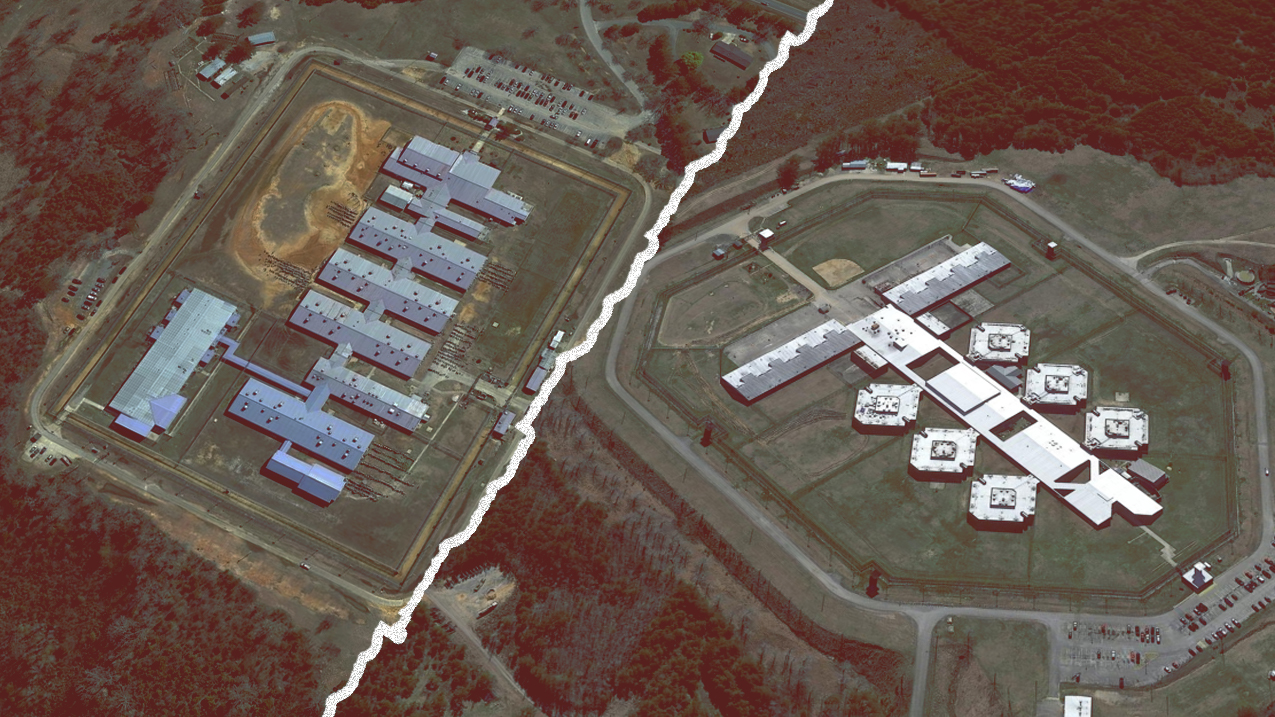Despite growing violence and death inside Alabama’s overcrowded and understaffed prisons for men, the state Legislature passed bills during the last legislative session that only stand to worsen the crisis, according to a recent report by the ACLU of Alabama.
The ACLU of Alabama 2021 Statehouse-to-Prison Pipeline report looked at legislation this past session that aimed to enact new penalties or strengthen existing charges, which can increase the number of people in the state’s prisons and jails.
“Alabama’s prisons have been in a perpetual state of violence, mismanagement and overcrowding for years, and when we set out to write this report we wanted to make it clear to the public that the Alabama Legislature has continued to sidestep the responsibility in addressing it,” Dillon Nettles, ACLU of Alabama’s policy director, told reporters during a Monday briefing.
Nettles noted a 2019 U.S. Department of Justice report that found conditions in the state’s prisons for men were so violent the state was in potential violation of the Constitution’s Eighth Amendment and its prohibition on cruel and unusual punishment.
“In June 2020, the DOJ released yet another concerning report detailing the excessive force and violence at the hands of Alabama Department of Corrections staff,” Nettles said.
Dillon said despite those two damning reports and state news media publishing stories detailing the horrific incidents of violence, drug overdoses and negligence, there was no urgency from the state Legislature or Gov. Kay Ivey to address those concerns.
In December 2020, the DOJ filed a federal lawsuit against the state of Alabama and the Alabama Department of Corrections alleging violations of inmates’ constitutional rights to protection from prisoner-on-prisoner violence, sexual abuse and excessive force by prison guards.
“As a 2021 Regular Session was nearing a close, we saw yet another session passed without the Legislature prioritizing these urgent areas of concern for people who are in the custody of the Alabama Department of Corrections,” Nettles said.
Of the 1,053 bills introduced during the last legislative session, 139 were what the ACLU of Alabama considered “pipeline” bills, with 90 in the House and 25 in the Senate.
“Ultimately, 52 of these bills passed and were signed into law,” the report reads.
House Bill 445, sponsored by Rep. Allen Treadaway, R-Morris, would have established the crimes of aggravated riot and unlawful traffic interference.
“This bill also denies bail consideration for a period of time and includes a mandatory period of incarceration that is not subject to probation or parole,” the report reads. “This legislation threatens expression of speech after months of peaceful protests by Alabamians inspired by a movement for racial justice, but it also has a negative impact by broadening the bail detention net.”
“While a majority of these bills were Republican-sponsored, by no means were they all,” Nettles said. “This is an issue that really cuts across partisan politics. Both parties are contributing to the pipeline.”
There were some bills that ACLU of Alabama’s report identified as positive, including a bill by Rep. Chris England, D-Tuscaloosa, that would have repealed the state’s Habitual Felony Offender Act.
House Bill 24, sponsored by Rep. Jim Hill, R-Odenville, chair of the House Judiciary Committee, gives some incarcerated people the opportunity to have their sentences revisited to reflect changes in sentencing guidelines since those people were sentenced.
“While we certainly feel that we have to go much broader than non-violent convictions in order to really meaningfully address this overcrowding that’s taking place in Alabama’s prisons, this does represent, I think, a step forward in a positive direction,” Nettles said.
The report also noted that Black Alabamians make up 26 percent of the population but account for 53.2 percent of the state’s incarcerated.
“We know that race is intertwined in all of our critical criminal punishment systems. Not just Alabama but all over the country,” said ACLU of Alabama investigative reporter Beth Shelburne. “We can’t really have this conversation without addressing race.”
Shelburne has been tracking avoidable deaths — homicides, suicides and drug-connected deaths — inside Alabama’s prisons since 2018, and said the state’s prisons are seeing a time of “unprecedented deaths and violence inside the system.”
“We are already at 31 such deaths this calendar year, and we still have four months to go,” Shelburne said. “The closest number that I’ve tracked since 2018 was in 2019. For the entire calendar year, there were 29 such deaths.”
Shelburne said that’s why bills like House Bill 106 are so important. The bill, sponsored by Rep. England, requires ADOC to file quarterly reports to the Legislature’s prison oversight committee on deaths inside prisons, which often aren’t reported unless a journalist learns of a death and asks ADOC to confirm a death and provide more information.
“I’m very aware that there’s a long way to go in shifting attitudes about how we deal with crime and safety in the state of Alabama,” Nettles said. “But this report is really supposed to underscore what we think are the principles that should be at the center of those discussions.”





















































